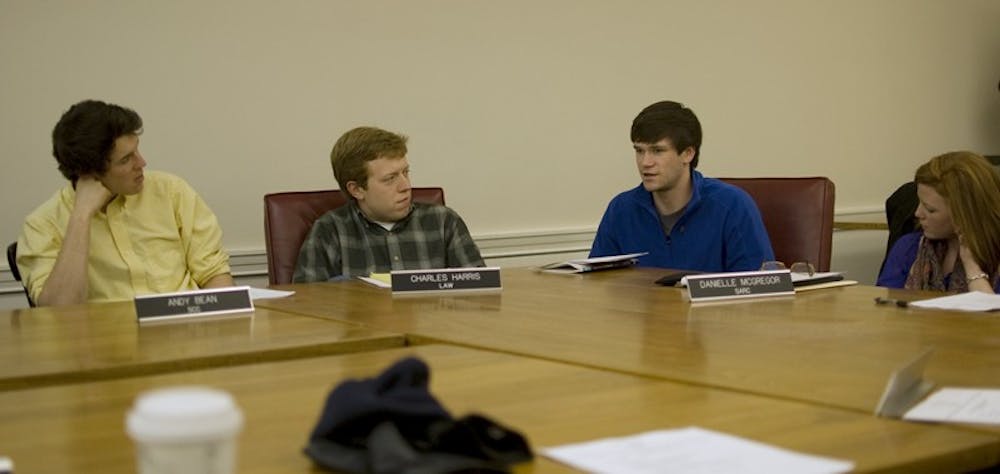After three weeks of discussion and an extended conversation yesterday evening, the Honor Committee voted in favor of a constitutional amendment that would release public summaries of honor cases. Two-thirds of Committee members voted to put the amendment on the upcoming University Board of Elections student ballot.
The Committee currently announces the outcomes of the cases it hears, but the proposed amendment would publicize additional information. The proposed summaries would provide background information about the alleged offense, spell out some of the major arguments of each side and indicate how the jury decided the case.
The summaries would range in length from a paragraph to one-fourth of a page, depending on how complex the trial is. In the case of a re-trial, a public summary would be issued but would not be linked to the original case.
The public summaries would allow the Committee to be more transparent, which is an issue the group has been debating and hoping to resolve for some time, said Graduate Arts & Sciences Representative Alexander Cohen, a former Cavalier Daily columnist.
"Honor should not be a mystery," Cohen said. "Honor should be a standard that we all understand and that we all have an ability to contribute to setting. That requires a public discussion and that requires information. If this is ratified, honor will be a lot clearer."
Public discussion of honor cases would make it easier for students to see how their individual conduct measures up to the standards of the honor system, Cohen said. Informed students would be better prepared to understand issues such as triviality and intent, he said.
"People should know what are the rules that they're living by," Cohen said. "And part of how you know that is knowing how those rules have been applied. If you want to understand how honor is being interpreted, you have to look at these cases. You should have an idea of what the community thinks because you're going to be held to that standard in an honor trial."
Committee Chair David Truetzel said he initially was concerned with how the amendment could affect the confidentiality of cases. It is possible that some students would be easily identifiable, especially if they were part of smaller departments such as the Nursing School.
The amendment, however, includes a number of "safety nets" to ensure students' privacy, Truetzel said. Accused students and the Committee's legal adviser would review the public summaries of their cases to ensure that no information could be used to identify the student. In addition, the Committee chair could decide not to publish the summary in certain extreme cases.
If the amendment is passed, the Committee plans to distribute the summaries during its meetings, which are open to the community to attend. Summaries also may posted on the Committee's Web site, Truetzel said.
If approved, the amendment could contribute greatly to the Committee's ongoing efforts to inform the University community about the honor system, Truetzel said.
"The summaries in conjunction with our educational efforts will help people have a better sense of what an honor offense is, and how to avoid committing one," he said.







